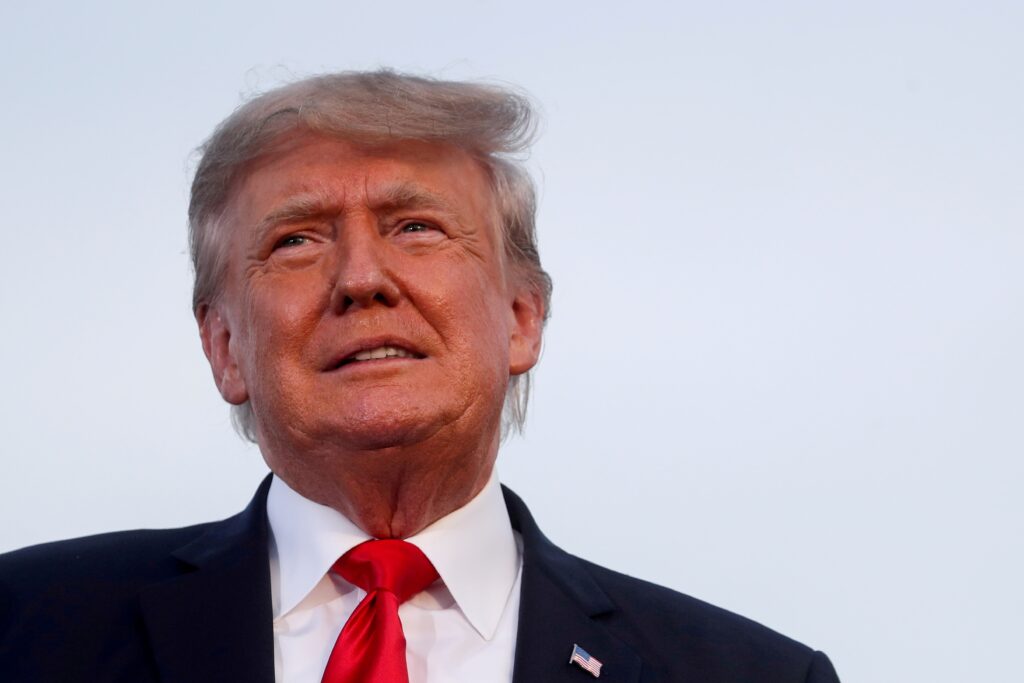President Donald Trump’s 2020 campaign sued The Washington Post in 2020 for what it said were false accusations in two articles that the campaign had conspired with foreign governments to interfere with the 2016 election. A federal judge dismissed the lawsuit Feb. 3, ruling the Trump Campaign did not adequately plead the factual basis of actual malice for one of the articles. The other article, said the judge, was protected opinion.
The two allegedly defamatory articles were published in The Post’s online opinion section in 2019. Since Trump’s Campaign is considered a public figure, the defamation claims had to meet the actual malice standard.
The actual malice standard was established by the 1964 Supreme Court decision in New York Times v. Sullivan, in which the court held that public officials and public figures can’t prevail in a defamation suit without proving that a statement was false and that, in addition, it was made “with knowledge that it was false or with reckless disregard of whether it was false or not.”
In “Trump just invited another Russian attack. Mitch McConnell is making one more likely,” opinion writer Greg Sargent pushed for new legislation that would prevent foreign interference in future U.S. elections, and criticized Senate Majority Leader Mitch McConnell for blocking such bills. In his article, Sargent argued that new laws were necessary given evidence that Trump was likely willing to accept help from foreign governments in future elections, pointing to special counsel Robert Mueller’s report.
“Mueller also concluded that Trump and/or his campaign eagerly encouraged, tried to conspire with, and happily profited off those efforts.” Sargent wrote, later qualifying the statement, “Mueller did not find sufficient evidence of a criminal conspiracy.”
The 2020 complaint singles out this statement as false and defamatory, writing, “the Mueller Report concluded there was no conspiracy between the Campaign and the Russian government.”
Whether or not Mueller’s report absolved Trump’s campaign of working with Russian oligarchs has been hotly contested. Though the President has insisted that the report proved there was no conspiracy, Mueller has testified that the report did not exonerate the president.
U.S. District Judge Rudolph Contreras wrote that Sargent’s inclusion of the qualifying statement, which read together as two sentences, “is the kind of action that dispels actual malice.”
Trump’s campaign claimed the second article “Trump: I can win reelection with just my base,” written by opinion writer Paul Waldman, was defamatory for similar reasons. After reflecting on a number of political strategies Trump may employ in the 2020 election in his article, Waldman posed a rhetorical question, “who knows what sort of aid Russia and North Korea will give to the Trump campaign, now that he has invited them to offer their assistance?”
The word “invited” was linked to an interview between ABC News and Trump, where the president said he would consider accepting information about his political rivals from foreign nations.
Judge Contreras noted that Waldman’s article was an opinion piece, and linking to the word “interview” provides readers with an opportunity to see the basis on which Waldman wrote his views. “Given the ‘plain context of opinion’ here, the Court rejects the Trump Campaign’s ‘hypertechnical’ reading,” he wrote.
George Freeman, executive director of the Media Law Resource Center, a nonprofit association which provides legal resources to the media, said attempting to “try and convince a serious court” of what Trump might believe the Mueller report actually says “rather than what it actually does say seems like a foolhardy endeavor.”
“These suits are all of a certain type,” Freeman said. “That type is not that they’re really winning based on the law, but they’re more just vituperative in a way of getting back at the people who write them by making them spend time and money in defending themselves.”
While Judge Contreras dismissed the lawsuit, he did so “without prejudice to afford the Trump Campaign another opportunity to adequately plead factual allegations on the element of actual malice.” The Trump Campaign has 30 days to file an amended complaint.
The dismissal comes weeks after another judge ordered Donald Trump and his lead attorney Alina Habba to pay nearly $1 million in sanctions after filing a “frivolous” defamation lawsuit to serve a political purpose against 31 of Trump’s political adversaries, including Hillary Clinton and former FBI Director James Comey.
Feb. 3, 2023 – U.S. District Judge Contreras Memorandum Opinion
Previous: Trump Campaign Sues Washington Post for Defamation, One Week after NY Times Lawsuit
Editor’s note: This article was updated Feb. 9, 2023 to include FBI Director James Comey’s title, and clarify that the two articles appeared in The Washington Post’s online opinion section.
Tags



